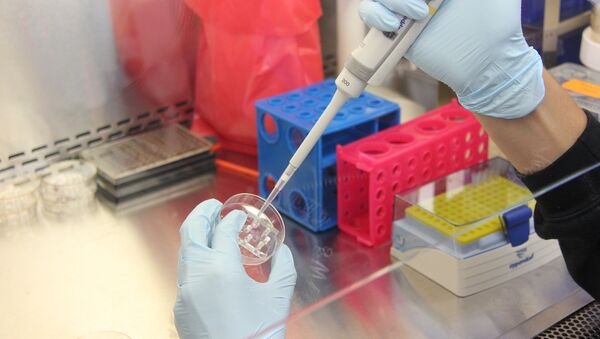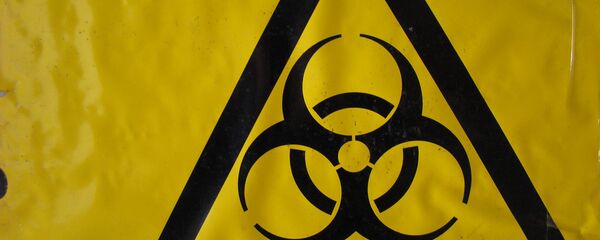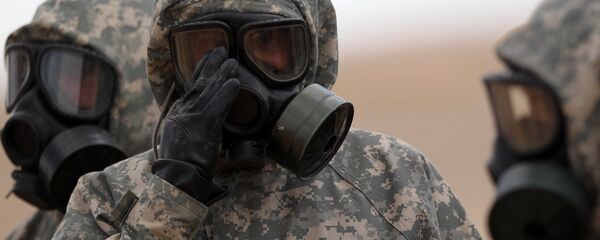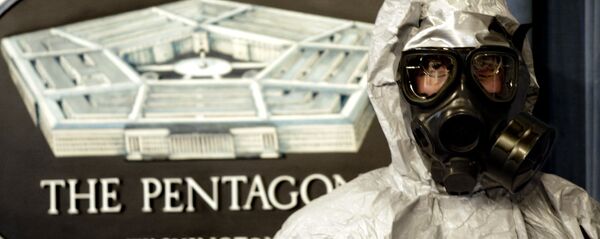The listing contains several requirements suppliers must meet.
"All Normal Human Fresh Frozen (FF) Synovial Tissue and Normal Human Ribonucleic Acid (RNA) samples must be Russian / Caucasian origin. All FF Synovial tissue and RNA samples must come from normal donors, who have no musculoskeletal injuries. This shall be confirmed by pathology," the contract reads.
"All RNA samples must be frozen. Synovial Tissues and RNA samples can be unmatched, meaning from different donors. All Synovial Tissue and RNA samples must be HIV, HBV, HCV and syphilis negative," it specifies.
Moreover, information on donors must be provided, including their sex, age, ethnicity, smoking history, medical history, height, weight and body mass index (BMI).
The samples must be delivered to the Lackland Air Force Base near San Antonio, Texas, within 10 days after the contractor receives the money.
Later, a change was made to the contract specifications: "All samples (Synovial tissue and RNA samples) shall be collected from Russia and must be Caucasian. The Government will not consider tissue samples from Ukraine."
In his op-ed, RIA Novosti commentator Alexander Khrolenko suggested that the contract might be related to the development and testing of biological weapons.
"The US has a powerful nuclear arsenal. But even a small-scope nuclear conflict would backfire at the Pentagon. As for biological warfare, it is effective and doesn’t lead to the destruction of economic infrastructure. In theory, a targeted epidemic could be a very powerful weapon," Khrolenko wrote.
For example, back in 2015, the Russian Defense Ministry said that one such facility is the US Richard G. Lugar Public Health Research Center in Tbilisi, which is actually a high level biological research laboratory overseen by the US Defense Threat Reduction Agency.
Another facility is the Central Reference Laboratory near Almaty, Kazakhstan, which is set to become operational this month under the Cooperative Biological Engagement Program led by the US Department of Defense.
There is another smaller US-controlled lab at a military base in the town of Otar in western Kazakhstan on the Caspian Sea.
Media reported that in 2013 in Ukraine, the US allegedly created laboratories in Vinnytsia, Ternopil, Uzhhorod, Kiev, Dnepropetrovsk, Simferopol, Kherson, Lviv and Lugansk.
In turn, Russia insists that the agreement must be fully implemented. Moscow has repeatedly called on Washington to provide security guarantees of its military-biological programs.
Russian military expert Igor Nikulin also suggested that the US might be developing biological weapons.
"They’re trying to create new forms of biological weapons, for example, combat viruses," Nikulin told RT.
At the same time, specialists in genetic and biological studies stressed that the tender does not relate to the development of biological weapons and is very likely to serve a scientific purpose.
"The more you know about the genetic diversity of people, the more opportunities you have, in particular, to treat and diagnose diseases," Konstantin Severinov, professor at the Skolkovo Institute of Science and Technology (Scoltech) and Rutgers University, told RT.
Sergei Kiselev, director of the laboratory of the Vavilov Institute of General Genetics at the Russian Academy of Sciences, pointed out that the number of samples specified in the contract would be enough for a scientific study.
"A dozen RNA samples are normal to make the conclusion that this set of RNA is specific for this type of cells. It is also usually enough to identify deviations. Even if the military was interested in this there should be a very specific research purpose," Kiselev said.
Genetic scientist Valery Ilyinsky echoed Kiselev, saying that the samples will be used for fundamental studies.
"There are a lot of methods to analyze RNA and there is a variety of such studies. It’s difficult to say which one will be conducted," the scientist said.






